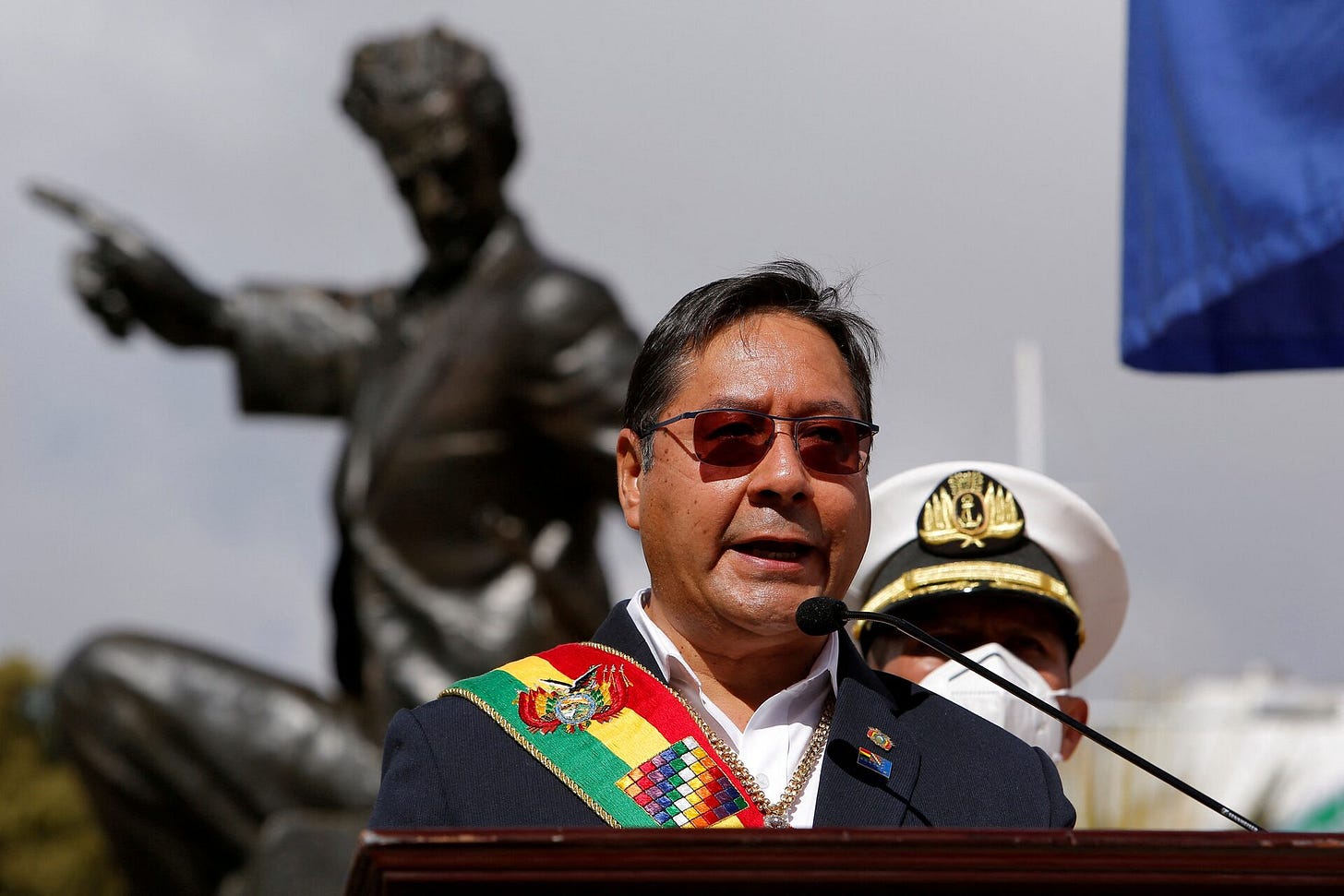Bolivia Coup – Western orchestrated or inside Job?
The American Empire flashes its talons
Written by foreign policy graduate Percy Spender, find more of his content on 𝕏 @PercySpender
Shocking scenes emerged from Bolivia last week where troops, armoured vehicles and tanks stormed the presidential palace in the capital city La Paz. Recently dismissed Army General Juan Jose Zuniga led the coup attempt to oust sitting President Luis Arce. Citizens loyal to Arce swamped the streets to show support for the government. Dramatically, in the corridors of the Presidential Palace, the seat of power in Bolivia, Arce angrily confronted Zuniga telling him ‘I am your Commander in Chief and I order you to withdraw your troops. I won’t tolerate insubordination.’ Eventually, Zuniga backed down and acknowledged the authority of the President, and perhaps seeing the widespread protests against him realised he did not have popular support.
Many people were quick to speculate the United States Central Intelligence Agency’s involvement but internal political tensions in Bolivia have been brewing for years. Typically, if you assumed coups in this region are backed by the West, you would often find yourself correct, Bolivia in particular has endured 190 different military coups since the nation’s inception in 1832. But last week’s coup was more likely organic, the political landscape has been unstable since former President Evo Morales fled the country in 2019 and recently over the last few months a difficult national economic crisis has worsened.
The economic situation is caused by a drastic fall in natural gas production, which is the backbone of the landlocked Andean country. The loss of foreign currency entering the country has led to a drop in fuel imports, leading to shortages, and worsening cost of living expenditures for civilians. President Arce has faced rising political pressure to solve the economic hardship or risk losing next year’s August Presidential election.
As for understanding the political instability, one man is at the centre of ongoing turmoil, former president Evo Morales. General Zuniga and Morales have been intertwined in an ongoing dispute over the last two years originating from Morales accusing Zungia of creating a secret group within the army that is involved with the production of drugs and surveils political opponents. Zungia reignited the quarrelling by promising to arrest Morales if he runs for a fourth term, resulting in Zungia being removed from his post. Morales’ running is problematic for several reasons, the first being his last electoral win sparked political turmoil and chaos resulting in his resignation and his fleeing the country. Morales’ previous reign was marred by controversy over term limits, where he implemented a limit of two consecutive terms for presidents but then went on to break himself and launched a referendum to remove the amendment. Despite the referendum being unsuccessful he ran in 2019 anyway, and with his victory came reports of massive voter fraud which sparked civil unrest. Secondly, Morales and current President Luis Arce are representatives of the same party, Movement for Socialism, and over the last few months, two figureheads have splintered the party over disagreements. Morales has returned from exile and maintained support from rural demographics, pledging to challenge Arce in the upcoming election.
After being arrested, Zungia claimed that President Arce had asked him to stage a coup. Pundits are suggesting that Arce could have orchestrated the shocking coup attempt to save his falling approval rating. Zungia stated ‘the President told me that the situation is very screwed up, very critical. It is necessary to prepare something to raise my popularity.’ And that Zungia should use armoured vehicles in the attempt. President Arce has denied being involved in the coup in any capacity. The days following the military storming the central plaza he told reporters that ‘How could one order or plan a coup on oneself?’ As well as posting on X ‘We are going to defend democracy and the will of the Bolivian people, whatever the cost.’ It is uncertain whether further investigation into Arce’s connection with the coup attempt will be undertaken.
There are many mysterious elements to this story. The CIA being behind it makes the least sense, in the past the motivation for carrying out regime change is to maintain American access to Bolivia’s rich lithium supply; but since the Milei victory and his strong commitment to bolstering ties with the United States it is unlikely the CIA would be interested in going to such trouble for a resource they have already secured. Could this all have just been a conspiracy for Arce to boost ratings and thwart Morales from taking power yet again? This political situation does not look like easing up until next year’s election. It will be interesting to observe what happens as the election campaigns heat up.



